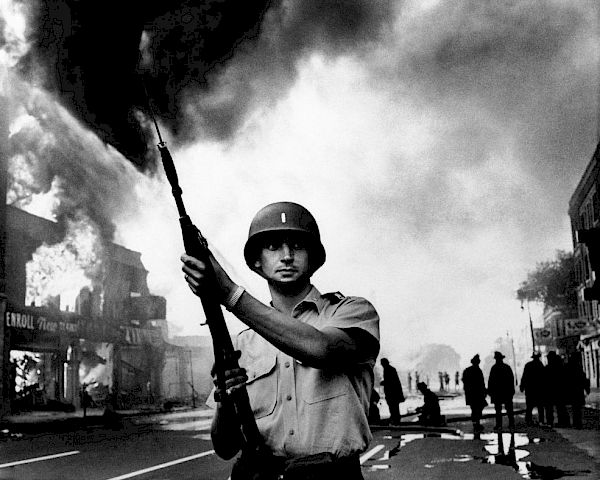What We're Reading This Week

James Parker
Lara Merling, We Can't Trust the IMF and World Bank to Lead the COVID-19 Recovery, Jacobin
Lara Merlin focuses on the controversies of the World Bank and International Monetary Fund's policies over the last 40 years, resulting in the global growth of poverty despite their official aims.
Haythem Guesmi, Not Yet Uhuru: Why Postcolonialism Doesn't Exist in FranceYet Uhuru: Why Postcolonialism Doesn't Exist in France, The Elephant
In this article, contemporary forms of French racism and neocolonialism in Africa are discussed in the context of art restitution discussions and media propaganda and their protection of the Parisian political elite.
Mary Retta, Universities to Grad Students: Drop Dead, The Nation
A text on the struggle for the basic rights of students and scholars at US and Canadian universities amid the COVID-19 pandemic.
Olivia Waxman, George Floyd’s Death and the Long History of Racism in Minneapolis, TIME
Waxman analyzes the race riots in Minneapolis within a broader urban historical perspective, with attention to US segregation policy.
Cindy Ewing
Alex Langstaff, "Pandemic Narratives and the Historian," LA Review of Books.
A roundtable of historians discusses various narratives about COVID-19 and how long-standing ideas and tropes are re-emerging in popular discourse and policy debates on how to frame and understand the crisis.
Faisal Devji, "Suspended Sentence: the Implications of the Pandemic on the Relationship between State and Citizen," Tank Magazine.
Devji cautions against rushed interpretations of the pandemic that risk humanising and historicizing its violence and instead urges us as publics to dwell upon questions of morality and political participation.
Soumya Sarkar, "Cyclone Amphan Puts Focus Back on Millions Displaced by Climate Disasters," The Wire.
In spite of early warning systems, Cyclone Amphan and the pandemic together underscore the acute vulnerability of populations in South Asia and other parts of the world to climate disasters.
Michael Brenes and Michael Franczak, "Trump, WHO, and Half a Century of Global Health Austerity," The Boston Review.
The recent decision by the United States to cut ties with the World Health Organization follows a multi-decade history of using international institutions to reinforce global capitalism at the expense of social and economic rights.
Vincent Bevins, "The 'Liberal World Order' Was Built With Blood," The New York Times.
The author of a new book argues that at the heart of modern globalization is a program of systemic violence orchestrated by the United States during the Cold War, exemplified by the 1965 anti-communist purges in Indonesia.
Christopher Szabla
Adam Higginbottom, "The Pirates' Booty That Changed the Course of History", New York Times
A review of Steven Johnson's book Enemy of all Mankind, which discusses the impact of pirate captain Henry Every on the global British empire.
Christiane Bird, "When Globalization Really Began", New York Times
Bird reviews Valerie Hansen's The Year 1000, and compares global transfer of goods and technologies in 1000 and at the beginning of the twenty-first century.
Andrew Liu, "Tea and capitalism", Aeon
Liu discusses the paradoxes of the modern world tea trade.
Thomas Meaney, "The Myth of Henry Kissinger", The New Yorker
Meaney interrogates Henry Kissinger's place within the historical American political establishment.
Adam Tooze, "We Remember World War II Wrong", Foreign Policy
How understanding the global consequences of World War II may help us to resolve current challenges.